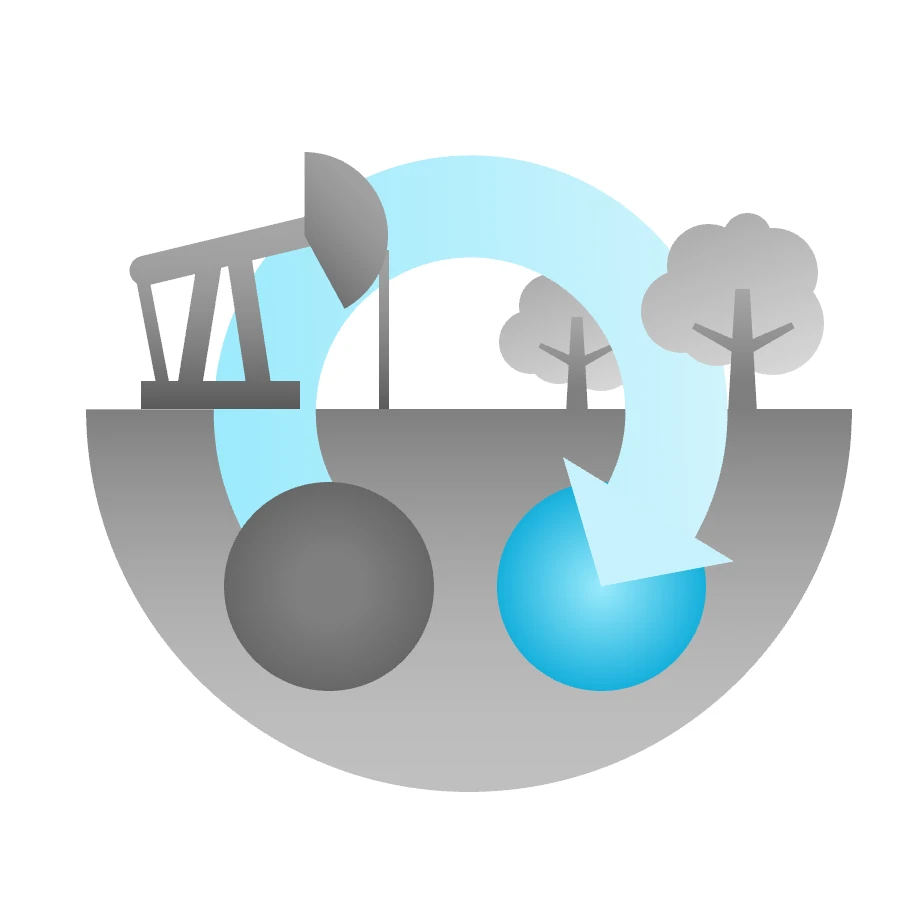Our Research
The reserach in our section falls into three categories: Geo-Energy, Geo-environmental Protection, and Computational Geosciences.
Geo-Energy
Our research on geo-energy explores methods to harness Earth's geothermal energy, advances the storage of liquid hydrogen in the subsurface, and studies the carbon footprint.
Geo-Environmental Protection
Industrial operations and anthopogenic interventions carry risks. Our research explores techniques to mitigate the impact of fossil fuel consumption, and analyzes the consequences of subsurface operations to reduce their future impact.
Computational Geoscience
The subsurface is mostly out of reach and out of sight. To rigorously analyse and predict the impact of subsurface operations, we advance research in data assimilation, optimization and control theory, and numerical simulation.
Our Publications
Below, you can access a list of our section's most recent publications.
- Mahnaz Aghajanloo, Sadegh M. Taghinejad, Denis Voskov, Rouhi Farajzadeh, (2024), Influence of water saturation and water memory on CO2 hydrate formation/dissociation in porous media under flowing condition, In Chemical Engineering Journal Volume 492.
- Geir Evensen, Femke C. Vossepoel, Peter Jan van Leeuwen, (2024), Iterative Ensemble Smoothers for Data Assimilation in Coupled Nonlinear Multiscale Models, In Monthly Weather Review Volume 152 p.1277-1301.
- Elahe Kamel Targhi, Mohammad Emami Niri, Mohammad Reza Rasaei, Pacelli L.J. Zitha, (2024), Lattice Boltzmann simulation of cross‑linked polymer gel injection in porous media, In Journal of Petroleum Exploration and Production Technology Volume 14 p.2509-2527.
- Jenny T. Soonthornrangsan, Mark Bakker, Femke C. Vossepoel, (2024), Linked Data-Driven, Physics-Based Modeling of Pumping-Induced Subsidence with Application to Bangkok, Thailand, In Groundwater.
- Jia Kun Gong, Yuan Wang, Ridhwan Zhafri B. Kamarul Bahrim, Raj Deo Tewari, Mohammad Iqbal Mahamad Amir, Rouhi Farajzadeh, William Rossen, (2024), Liquid injectivity in a SAG foam process: Effect of permeability, In Petroleum Science Volume 21 p.302-314.
- Maartje Boon, Ivan Buntic, Kadir Ahmed, Nicole Dopffel, Catherine Peters, Hadi Hajibeygi, (2024), Microbial induced wettability alteration with implications for Underground Hydrogen Storage, In Scientific Reports Volume 14.
- A. C. Alvarez, J. Bruining, D. Marchesin, (2024), Modeling low saline carbonated water flooding including surface complexes, In Computational Geosciences Volume 28 p.373-393.
- Thejas Hulikal Chakrapani, Hadi Hajibeygi, Othonas A. Moultos, Thijs J.H. Vlugt, (2024), Mutual Diffusivities of Mixtures of Carbon Dioxide and Hydrogen and Their Solubilities in Brine: Insight from Molecular Simulations, In Industrial and Engineering Chemistry Research Volume 63 p.10456-10481.
- Christiaan Oudshoorn, Dieter Werthmüller, Evert Slob, Denis Voskov, (2024), Numerical experiment on data assimilation for geothermal doublets using production data and electromagnetic observations, In Geophysics Volume 89 p.M227-M237.
- Samantha S.R. Kim, Femke C. Vossepoel, (2024), On spatially correlated observations in importance sampling methods for subsidence estimation, In Computational Geosciences Volume 28 p.91-106.








